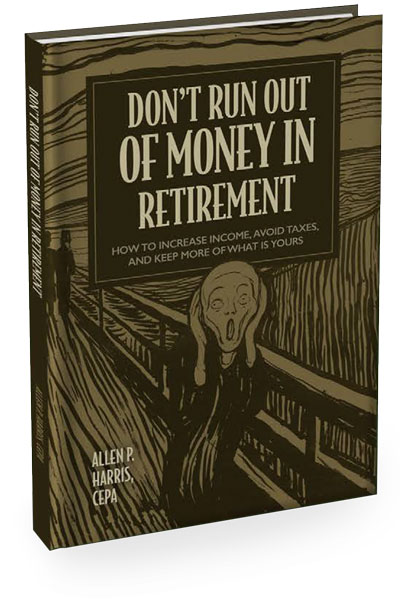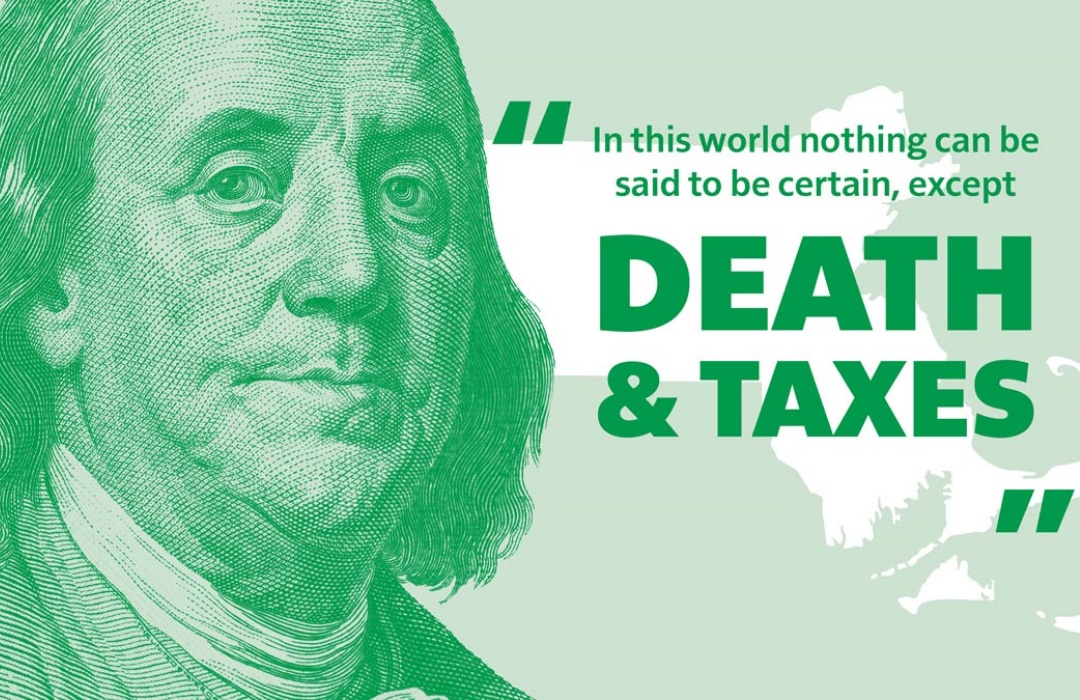Managing Risks in Retirement: Recession Edition

One of the biggest worries people have about retirement is, “do I have enough money?”
That answer is going to be different for each individual depending on their lifestyle and needs during their golden years, but in general, managing risk in retirement involves three key elements:
- anticipating potential pitfalls
- regulating emotions through market downturns
- proper asset allocation to weather the economic storms.
Table of Contents
- 1 How do you prepare for changes in the stock market?
- 2 How do you prepare for changes in the economy?
- 3 What about medical expenses during retirement?
- 4 How does a recession affect my retirement plan?
- 5 Can I retire during a recession?
- 6 I am already retired, how does a recession affect me?
- 7 How to protect your retirement savings in a recession
- 8 Most common retirement risk management questions
- 9 Don’t run out of money in retirement!
How do you prepare for changes in the stock market?
When it comes to protecting your money in retirement, there are a couple different factors of risk that come into play. One of the biggest concerns people have relates to investment risk. When it comes to defending your retirement investments from stock market declines, it’s vital to make sure that your assets are properly allocated. Think of it like distributing your assets between several “buckets” so if one declines, you will still have other buckets to draw from.
Generally, you want to have three primary buckets based on your timeframe: short term for emergencies, medium term for a 5-to-7-year timeframe, and long-term for 8+ years out. Each of those buckets should be invested in an appropriate manner to mitigate risk and match your specific timeline and risk tolerance needs and preferences. Your buckets should include a healthy mix of stocks and bonds to spread exposure to risk among different asset classes and industries. This sort of diversification can limit losses in a market downturn.
How do you prepare for changes in the economy?
Another frequent concern clients have about retirement is inflation. Currently, we’re in a high inflation period compared to the past 20 years–but it’s nowhere near what it was in the 1970s and 1980s. Inflation can have a huge impact on your investment accounts and your purchasing power.
To make your savings last through retirement, you need to be able to plan for uncontrollable increases in the cost of living like we’ve seen in recent years. Grocery stores have been forced to jack up their prices; gas is a commodity – it’s always changing; car prices went through the roof and so did housing. These dramatic increases are not likely to continue each year, as inflation rates tend to normalize over time.
Many folks forget to account for inflation when they are planning for the years ahead as it’s a phantom expense that you don’t really see or feel until you’re in the grocery store and prices are double what they’ve been in the past. This is where working with a professional can really give you some perspective. With our financial planning tools and experience, we can show you how 50 years of average inflation adds up, just to make sure you’re prepared.
What about medical expenses during retirement?
Another major risk to consider in retirement is the cost of medical care. Health care is a big unknown for most people – of course, we all hope to maintain our health. While long-term care and end of life needs may make up a big part of the total cost, regular routine healthcare is also a worry. You’ll need to evaluate, are you properly protected for both large, one-time expenses and frequent out-of-pocket medical costs? It can be complicated, which is why planning becomes so crucial.
Many people don’t realize healthcare can still be a major expense when enrolled in Medicare. It’s not necessarily the premiums of Medicare that are costly – it’s the out-of-pocket costs that add up. For example, if you need ongoing treatment or require an expensive prescription that’s not covered under Part D, that can easily add up to thousands of dollars every year.
So how do you fill that gap?
When you’re enrolled in Medicare, you want to make sure your policies are consistently reviewed, at least annually, to determine whether you are still in the best program to address your needs. You might need to make changes as your medical history changes over time.
To keep your medical bills in check, you may opt to purchase an additional policy and/or a Medicare Advantage policy. Supplemental policies are a way to control some of the healthcare risk – they typically feature an out-of-pocket maximum that puts an upper limit on your healthcare costs each year. This way you can plan for what that maximum annual expense may be.
When it comes to the bigger medical expenses that often occur later in life, mitigating risk involves long-term care planning. Long-term care insurance is one potential way you can reduce the risk to your assets should you require a lengthy stay at a nursing facility or extensive in-home care. This type of policy comes at a high cost, so it’s important to consider other avenues as well.
How does a recession affect my retirement plan?
Since no two people have the same retirement plan, there’s no one answer to how a recession impacts your retirement plans. If you look back at how the stock market returned during recessions (since the 1940s), about 50% of the time, the recession didn’t have much of an effect on the market at all!
You may have heard horror stories about people who had their retirements destroyed by the 2008 recession. Often what you find is that they cashed out (or sold their investments) at the bottom, locking in the loss, and didn’t get back in.
Going to cash during, before, or after a recession, may seem like the safest idea, but history has shown that in any type of recession, the market has been more bullish afterward. If you’re sitting in cash, you’ll miss the opportunity to recoup your loss and get your money back. These are natural, emotional reactions – think back to a Psychology 101 course and remember “fight or flight”. When we feel fear (i.e., the value of our savings going down), we tend to “run” – which often translates into selling your investments at an inopportune time. It’s important to take a step back and remember the statistics; having an outsider such as a CFP® Professional look at your overall plan can help to put things back into perspective.
Our financial planning software is a great help when it comes to stress-testing your retirement plan and answering questions about how a potential recession could impact your own unique circumstances. When we make your financial plan, we can run scenarios that simulate the impact of a recession or a bear market on your retirement savings. If you have concerns about how a recession would impact your savings, I encourage you to schedule a call with a member of our team.
Can I retire during a recession?
Picture this: you’re planning to retire in one year, but you just heard on the news that the U.S. has officially entered a recession. Should you stick to your plans or delay your retirement until the market recovers?
You may not have to imagine that scenario – many people find themselves in that position during each market pullback. If you’re living it, your financial advisor can help you run the scenarios and understand potential risk.
How a financial advisor can help
Beyond the calculations, a financial advisor’s job is to give you confidence and avoid panic. Even if the software says, “Yes, you can retire now,” are you able to emotionally handle retiring during a volatile time? That will be up to each individual. Part of my job as a financial planner is helping you navigate the psychology of risk and money. I can never make definitive predictions about the future, but I can help you understand possible situations to help you find some peace of mind.
Would you recommend someone retire during a recession?
I rely on gathering all the facts and looking at everything holistically before I give any recommendations to a client. The biggest concern when you retire into a recession is called “sequence of return risk.” If your portfolio experiences losses as you begin making withdrawals, you have fewer assets left to then gain back the losses during the eventual recovery. Sequence of return risk is all about timing, and is a risk you can’t control.
We have worked with some clients that retired during COVID-19 and others that retired in 2022 when the market took a hit. We spent a lot of time reviewing their Financial Plan before pulling the trigger to ensure they could weather the storm without feeling immense anxiety. Retiring in a recession is all about having a cushion to rely on and the confidence to ride out the downturn and make it to the recovery on the other side.
I am already retired, how does a recession affect me?
If you’re already retired, your biggest concerns are going to be which income streams will be impacted. Pensions, social security, and annuity income won’t take a hit, but if you’re relying heavily on investment income – you may feel the sting.
If you’re someone who is reliant on investment income, I generally recommend you try to be a little more conservative during a recession. Again, as history has shown, the market does typically come back over the next few years. There is no need to panic, but it may be wise to hold off on making large discretionary purchases for now. It’s important to remember that if your portfolio is down 50%, making a $1,000 withdrawal has a similar impact to withdrawing $2,000 while it was up. Returning to psychological concepts, there is something known as Loss Aversion Theory, which explains how humans feel the pain of a loss at almost twice the intensely as the joy of a win or gain. When we see our account balances decrease, many people will naturally begin to cut back on discretionary spending.
As financial advisors, we’re here to help not just to mitigate risk, but to emotionally weather stormy markets. In the short term, a recession can destroy your wealth. But when you hold on, you can create long-term growth.
How to protect your retirement savings in a recession
Back to the bucket metaphor, also known as “diversification.” As you approach and enter retirement, your investments should be divided into several buckets:
Short-term buckets – your emergency funds. This may include cash, money market funds, and possibly conservative short-term bonds or treasury bills. Your short-term bucket should be able to hold you over while the markets are down. Recessions are not forever. An average recession can last anywhere from 6 to 18 months. Even then, that doesn’t mean the market’s going to be down the whole time. If you want to protect yourself, having and living off this first bucket of cash and very conservative investments will help you weather the storm.
Medium-term buckets – 1 to 3 years of expenses. The goal here is to reduce the risk of loss on the money you’ll need in the near future, without pulling your investments out of the markets entirely. Your medium-term bucket will likely contain more blended stock/bond ratio investments.
Long-term buckets – risk and reward. The funds you won’t need for several years can afford more exposure to risk than those in your short- and medium-term buckets. In most cases, these assets are invested more heavily in the stock market, which experiences more frequent and significant losses than bonds or treasury bills, but also offers much more opportunity for growth.
A good plan for living on your retirement savings during a recession is to have enough to live on in any given year in the short- and medium-term buckets and leave the long-term bucket alone to let the market rebound those losses.
Most common retirement risk management questions
A recession may impact your Social Security benefits in one significant way: cost of living adjustments may be minimal during an economic downturn, which can affect your purchasing power. Funding Social Security benefits has been a hot topic in recent news, but it’s important to understand that if changes are required to the national Social Security program, the benefits are expected to be cut by a percentage, as opposed to being cut altogether.
Can a recession affect my pension?
If you are relying on a federal or state pension, you might see smaller cost of living adjustments during a recession.
Can a recession wipe out my retirement savings?
Anything is possible, but if your retirement savings are properly diversified, a recession shouldn’t leave you empty handed. Even in the Great Recession, the most extreme losses we saw were closer to 50% than 100%. If you stay in the market, some or all of the losses will hopefully be recovered. (And, historically, investments see significant growth after a recession!)
Should I pay down debt while retired in a recession?
When evaluating whether you should pay down debt during a recession, the key factors to compare are your interest rate versus your investment return rate. Consider the long-term break-even points. For example, if you take $50,000 out now to pay off your mortgage, you may have an extra $1,000 each month in your budget. But how will your investments recover from that $50,000 drawdown?
A recession may or may not bring significant stock market losses, but if you take money out at or near a market bottom, you’re multiplying the impact of the loss. That loss will be felt even more when the market recovers and you miss the returns that often follow a downturn.
That said, everyone’s circumstances are different. Your financial advisor is a valuable resource to help you evaluate the pros and cons of paying down debt during retirement – recession or not – and provide guidance on how to manage the changes debt repayment will make to your budget.
Don’t run out of money in retirement!
Recession or not, the biggest retirement worry is running out of money. In Don’t Run Out of Money in Retirement: How to Increase Income, Avoid Taxes, and Keep More of What Is Yours, Berkshire Money Management CEO and Chief Investment Officer Allen Harris addresses this fear and offers practical solutions for making your savings last.

Lauren is a CERTIFIED FINANCIAL PLANNER™ professional, Certified Exit Planning Advisor, and Certified Value Builder. In her role as Assistant Director of Financial Planning at Berkshire Money Management, she develops comprehensive financial plans for BMM clients and prepares business owners to strategically transfer or sell their companies.









